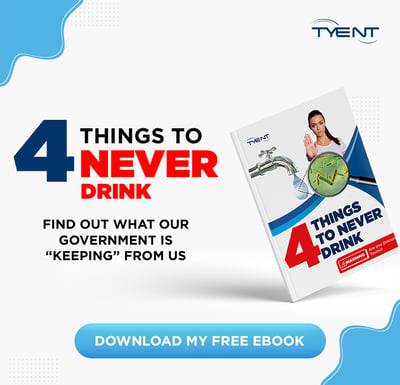Gluten Free: What is Gluten and Should You Avoid It?
 Gluten-free is a term we hear with more and more frequency these days. Gluten-free diets are the new health rage, while the banner gluten-free appears on many food product labels on the market today. But what exactly is gluten? I wanted to know and here is what I learned.
Gluten-free is a term we hear with more and more frequency these days. Gluten-free diets are the new health rage, while the banner gluten-free appears on many food product labels on the market today. But what exactly is gluten? I wanted to know and here is what I learned.
Gluten: /’Glootn/ noun–A substance present in cereal grains, especially wheat, that is responsible for the elastic texture of dough. A mixture of two proteins, it causes illness in people with Celiac Disease.
Gluten is a binding protein found in wheat, barley, and rye. It is what makes pizza dough stretchy, gives bread its softness, and helps it to rise while contributing to the flavor. It is in pastas and other wheat based foods.
There is a lot of unsettled debate going on as to whether going gluten-free is really the way to go. Some argue that by eliminating gluten from your diet you end up replacing it with foods that contain more sugar, fewer vitamins, and less fiber.
 While some companies may have our good health in mind, many food manufactures have simply jumped on the bandwagon to help fuel the craze with a gluten-free business that is expected by some estimates to top six billion dollars worldwide by 2018 (one person saw gluten free listed on a can of lard). Without making any health claims, manufacturers are able to say they are merely responding to consumer demand for gluten-free foods.
While some companies may have our good health in mind, many food manufactures have simply jumped on the bandwagon to help fuel the craze with a gluten-free business that is expected by some estimates to top six billion dollars worldwide by 2018 (one person saw gluten free listed on a can of lard). Without making any health claims, manufacturers are able to say they are merely responding to consumer demand for gluten-free foods.
The problem with this according to an article in *Women’s’ health magazine is (and I quote), “Without gluten to bind food together, food manufacturers often use more fat and sugar to make the product more palatable.” Consider pretzels: A serving of regular pretzels has about 110 calories and just one gram of fat. Swap them for gluten-free pretzels and you could get 140 calories and six grams of fat.
So is gluten really that bad for us, and if so why? Well, as is usually the case, that depends on whom you ask. In a recent article by Julie Jargon in the Journal, she states that, **“Many health experts say there is no proven benefit to going gluten-free except for a small sliver of the population whose bodies’ can’t process the protein.”
 Those people that are unable to process this protein suffer from a very painful condition known as Celiac Disease. ***Celiac Disease is a seriously painful disorder in which the introduction of gluten into the stomach (even the smallest quantity) causes the immune system to form anti-bodies that launch an attack on the walls of the small intestine causing inflammation while doing damage to the villi. Villi are small, hair-like structures on the lining of the small intestine that absorb the nutrients in the food we eat. When the villi are damaged, we cannot absorb nutrients properly and we end up malnourished regardless of the amount of food we eat. In the end, we can be over-fed and under nourished.
Those people that are unable to process this protein suffer from a very painful condition known as Celiac Disease. ***Celiac Disease is a seriously painful disorder in which the introduction of gluten into the stomach (even the smallest quantity) causes the immune system to form anti-bodies that launch an attack on the walls of the small intestine causing inflammation while doing damage to the villi. Villi are small, hair-like structures on the lining of the small intestine that absorb the nutrients in the food we eat. When the villi are damaged, we cannot absorb nutrients properly and we end up malnourished regardless of the amount of food we eat. In the end, we can be over-fed and under nourished.
 Our immune system is designed to protect our bodies’ from foreign invaders. People whose bodies’ are gluten intolerant have their immune systems fooled into seeing gluten as an invader and so our antibodies attack.
Our immune system is designed to protect our bodies’ from foreign invaders. People whose bodies’ are gluten intolerant have their immune systems fooled into seeing gluten as an invader and so our antibodies attack.
Some people however, do not have Celiac Disease but are still gluten sensitive and need to avoid grains and pastas as they can upset the stomach.
Overall, here is what I inferred from what I read. If you are suffering from Celiac Disease or gluten sensitivity, you definitely need to stay away from all things gluten.
On the other hand, if you do not fall into either of those two categories and believe that just going gluten-free is going to make you healthier, forget it. In fact, it may even make you unhealthier by introducing more fat and sugars and calories added to make up for gluten properties.
At Tyent USA, we are all about good health. To learn more about the healthiest ionized alkaline water you can drink that is truly good for you please visit us at Tyentusa.com.
Did I mention that Tyent Water is gluten-free? Ha!
For more information about Celiac Disease, it symptoms and effects, follow this link below.
http://www.webmd.com/digestive-disorders/celiac-disease/celiac-disease
Image Credit 123rf.com
Information Credit
*womenshealthmagazine.com
**http://online.wsj.com/
***Webmd.com



![Is Vitamin Water Good for You? Everything You Need to Know [2025] Screenshot 2025-01-17 085231](https://www.tyentusa.com/blog/wp-content/uploads/2023/10/Screenshot-2025-01-17-085231-150x150.png)




